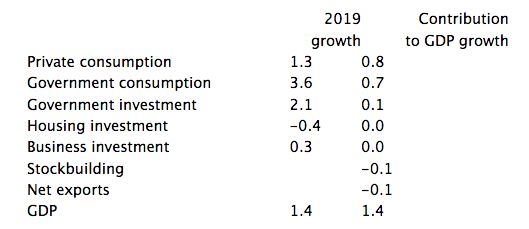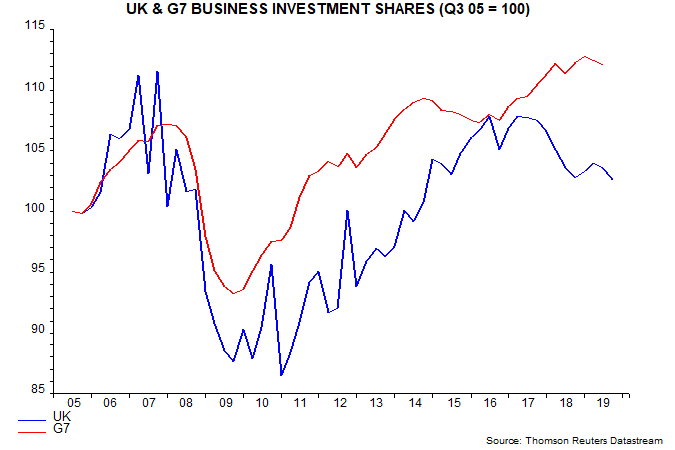
Janus Henderson Investors: UK economic weakness masked by government spending surge
UK GDP grew by a slightly firmer than expected 1.4% in 2019 as a whole but the expenditure breakdown gives little cause for celebration.
13.02.2020 | 07:52 Uhr
The increase was consumption-driven, with private investment and net exports flatlining – see table.

Government consumption grew at the fastest pace since 2005 and was responsible, in an accounting sense, for half of overall GDP growth. Market sector gross value added rose by only 1.1% in 2019, with four-quarter growth falling to 0.6% in Q4.
Business fixed investment increased marginally but remained below its 2017 level. The chart compares trends in the UK and G7 business investment shares of GDP, measured at constant prices, since 2005. UK investment fell more in the 2008-09 recession but the gap had closed by the time of the EU referendum in 2016 (partly reflecting temporary weakness in US energy investment due to the 2014-15 oil price collapse). The UK share has since underperformed by 8%.

Previous posts discussed a simple rule for assessing GDP growth prospects for the coming year, involving comparing December levels of share prices (of domestically-orientated companies) and annual real broad money growth with 12 months before. When both were higher, GDP growth in the following calendar year was usually solid (average = 3.9% in 16 years since 1965). It was usually weak when both were lower (average = 0.3% in 11 years).
The rule gave a negative signal for 2019 but is positive for 2020. The judgement here is that it will prove wrong on this occasion. Share prices – as measured by the FTSE local UK index – recovered from an oversold level in December 2018 but were still lower at end-2019 than in December 2017. The rise in real broad money growth between December 2018 and December 2019, meanwhile, was partly inflation-driven – nominal money growth remains weak and, like share prices, was lower in December 2019 than two years before.




Diesen Beitrag teilen: